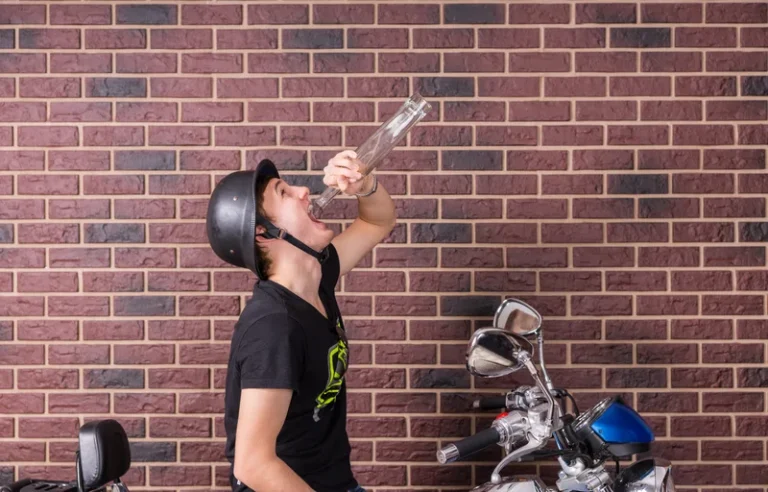
Joining a self-help group has been shown to significantly increase the chances of long-term recovery. The combination of a substance abuse program and self-help group is the most effective [22,23]. But clients and families often begin recovery by hoping that they don’t have to change. They often enter treatment saying, “We want our old life back — without the using.” I try to help clients understand that wishing for their old life back is like wishing for relapse. Rather than seeing the need for change as a negative, they are encouraged to see recovery as an opportunity for change. If they make the necessary changes, they can go forward and be happier than they were before.
Seeing or Sensing the Object of Your Addiction
- For one, it bolsters self-respect, which usually comes under siege after a relapse but helps motivate and sustain recovery and the belief that one is worthy of good things.
- This may mean leaving the grocery store or not saying hello to a friend from that period in your life.
- When you are able to learn new methods and ways to cope with both internal and external stressors, you may be able to reduce your risk of relapse.
- Recovery is hard work and drug use feels easy, and this can make people feel like their efforts haven’t been worth it.
Relapse prevention is a skill that takes dedication and following relapse prevention strategies. You can achieve this by recognizing your triggers and developing healthy coping skills. Through internalizing these techniques, you may be able to reduce your risk of suffering a relapse once you go back to your normal day to day routine in New York.
Stage 3: Physical relapse
In the second stage of recovery, the main task is to repair the damage caused by addiction [2]. Clinical experience has shown that this stage usually lasts 2 to 3 years. This can mean being surrounded by supportive loved ones, going to counseling regularly, or attending a peer support or 12-Step group. Isolating oneself from these support resources can put one at a greater risk for relapse. During a relapse, you may experience multiple depression symptoms, and those symptoms can be different with every relapse event. You will likely sleep better, have a more regulated appetite, feel a mood boost, and negate some of the negative effects of other chronic health issues.
Relapse Prevention Workbooks
- Having a plan to get through times when your cravings are triggered will be very helpful in avoiding a relapse.
- A simple test of whether a person is bending the rules is if they look for loopholes in recovery.
- When these emotions crop up again during recovery, the brain remembers dealing with them using drugs or alcohol and prompts cravings.
They do not mean the individual will relapse or that they are doing a poor job of recovery. Once a person has experienced addiction, it is impossible to erase the memory. But with good coping skills, a person can learn to let go of thoughts of using quickly. Occasional, brief thoughts of using are normal in early recovery and are different from mental relapse. They feel they are doing something wrong and that they have let themselves and their families down.
More Relapse Prevention Strategies
In fact, substance abuse may begin as an attempt at self-medication to cope with undiagnosed depression, anxiety, or another mental illness. Fortunately, doctors have many ways to treat mental illnesses that do not involve the use of addictive medications, and relief from mental illness can help you avoid a potential relapse. In the abstinence stage of recovery, clients usually feel increasingly better. But in the repair stage of recovery, it is not unusual for individuals to feel worse temporarily.

Relapse Triggers: What You Need to Avoid

Relapse prevention is an umbrella term that refers to strategies that help reduce the likelihood of relapsing. Most relapse prevention strategies focus on building cognitive-behavioral skills and coping responses. Through cognitive behavioral therapy, you may be able to deal with and eventually manage these symptoms. This is because the CBT program will teach you new strategies to ensure that you do not succumb to these symptoms and end up suffering a relapse as a result. Putting a relapse prevention plan in place during your addiction treatment in New York can reduce your risk of suffering a relapse once you have left the treatment and rehabilitation facility.
Internal Triggers
If someone is not operating with all of their faculties due to exhaustion, they are less likely to be employing the techniques they learned in treatment. The path to sobriety https://ecosoberhouse.com/ is a long and difficult journey, and the process is different for everyone. While some may never relapse, others may relapse several times at some point during recovery.

Press Play for Advice On Recovery
- Another goal of therapy at this stage is to help clients identify their denial.
- These thoughts can lead to anxiety, resentments, stress, and depression, all of which can lead to relapse.
- Stress is a part of daily life for most people, whether it’s being late to work in the morning or tense relations with a loved one.
- Some people experience a whirlwind of emotions when seeing old friends and loved ones, which can trigger the desire to have a drink.
- This is a foray into mental relapse, which can quickly result in physical and full relapse.
- For many people, engaging socially and forming a support system in recovery can feel exhausting.
While it is more controlled and brief than a full relapse, a series of lapses can easily progress to relapse. Take positive steps to manage your stress and anxiety, such as mindfulness, exercise, and speaking to a therapist or support group. Seeking professional types of relapse triggers help when faced with challenges during your recovery journey is paramount. Therapy, counseling, and support groups are all great resources to help you on your path to recovery, offering essential tools and resources needed to maintain sobriety.


